![]() Corporate getaway for big and small ...
Corporate getaway for big and small ...
One night free at this this fully-catered retreat in Winelands
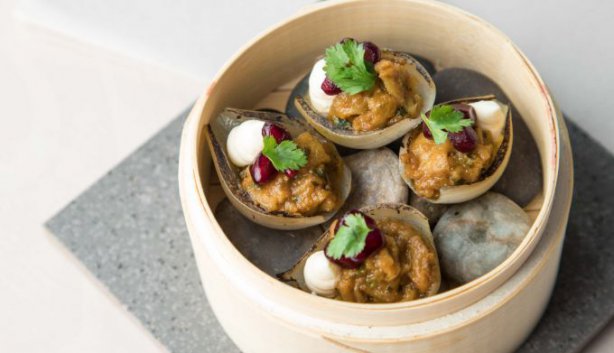

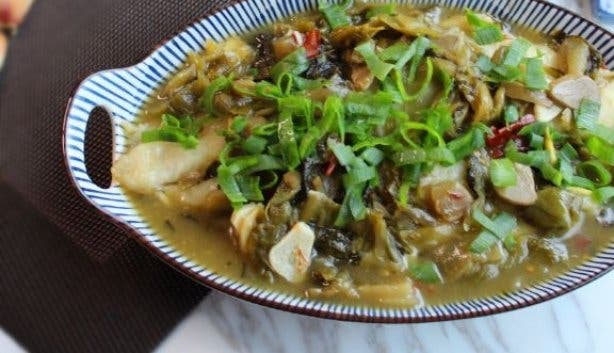
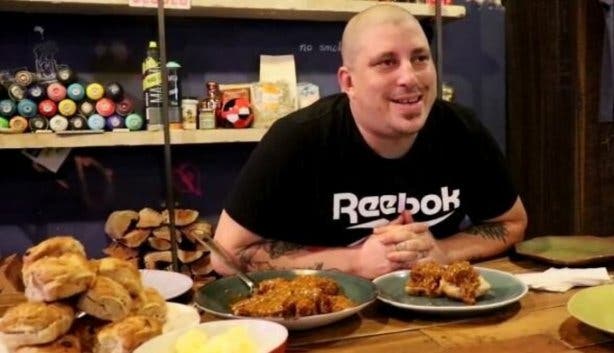
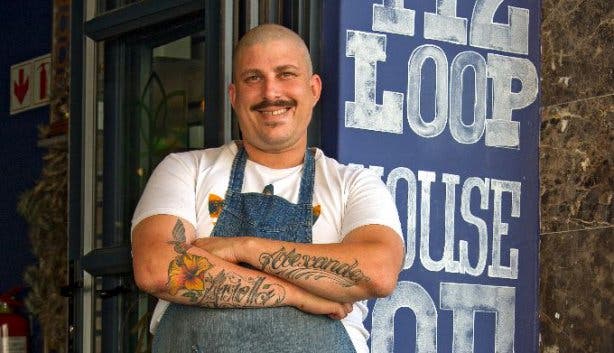
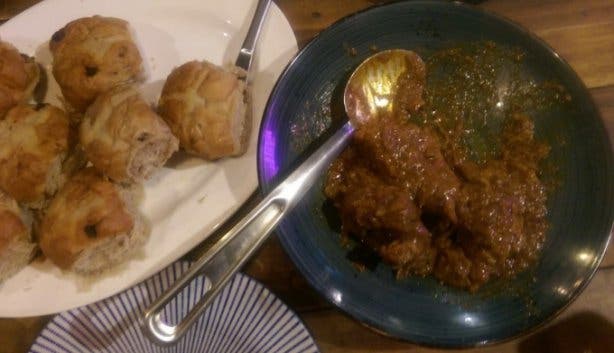
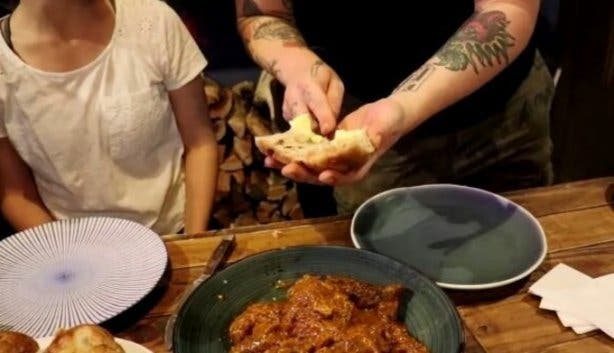
| For Moments of Joy. Follow our social channels for useful news, daily local champions | |
 | 072 350 2062 |
 | Ideas Cartel, The Old Foundry, 1 Sand Hill Road, Green Point |
 | www.capetownmagazine.com/subscribe |
 | now@capetownmagazine.com |
 | CapeTownMag |
 | CapeTownMagazine.com |
 | capetownmag |
3 chefs with a similar heritage, but very different recipes
Last update: 23 March 2022
Easter isn’t Easter in the Western Cape without pickled fish (also known as ingelegde vis or Kaapse kerrievis). Although the history of this tasty, aromatic fish dish is unclear, it is very much a favourite of Cape Malay cooking. Two chefs and an acclaimed cook, all with a similar food heritage, share their recipes and Easter memories.
For all of the three – acclaimed Cape Malay cooking expert Zainie Misbach, veteran chef Heinrich Koen and chef Andre Hill – pickled fish was an Easter childhood staple.
“It seems to be one of those traditions that has roots within both Cape Malay (Muslim) households and in traditional NG Kerk (Christian) households that have intermingled over hundreds of years,” says Heinrich.
Zainie, who runs the Bo-Kaap Cooking Tours, thinks back to camping with her family in front of the dunes at Macassar Beach, near Strand, over Easter weekend. “You'd find up to a hundred tents, and every tent would have pickled fish. It was a place for old friends and family to reconnect, and where teenagers meet their future husbands,” Zainie laughs.
Owner of Upper Bloem (now closed) chef Andre Hill grew up in Bo Kaap and says: “Pickled fish is a dish that transcends cultures, as it's rooted in Cape Malay food origins, yet is served at Easter, which is typically a Christian holiday,” says Andre, whose recipe has a surprising twist.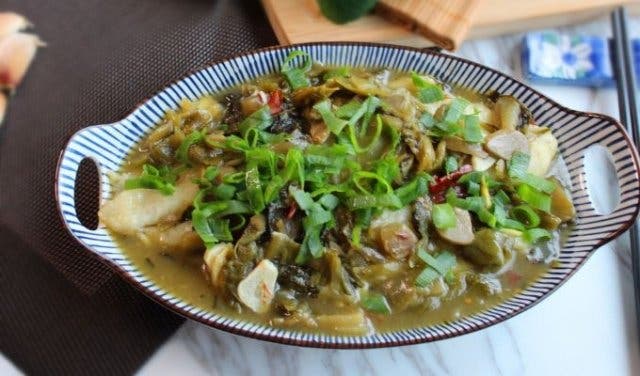
Having pickled fish over Easter is a Western Cape tradition loved by many.
Zainie makes her dish exactly the same way as her parents and grandparents did. “It is the way it was 300 years ago,” says Misbach. Zainie makes the pickled fish at least two days before the Easter weekend, with four or more loaves of homemade white bread. Even the question of spreading pickled fish on a hot cross bun makes her cringe. “No! It must be on a loaf of homemade white bread,” she laughs.
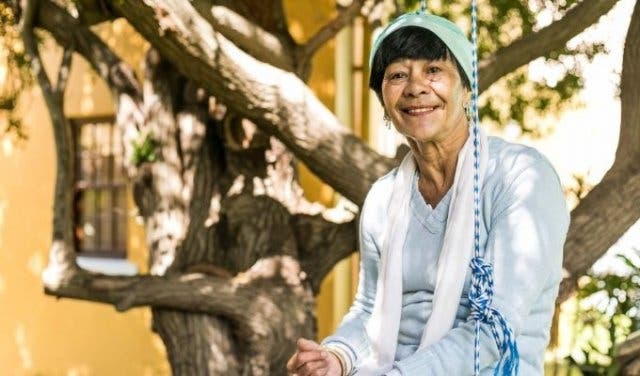
Cape Malay cooking expert, Zainie Misbach, always serves her pickled fish on white homemade bread.
Ingredients
For the fish:
1kg of kabeljou or snoek. “Pickled fish is usually made with kabeljou. Today, you can also make it with snoek,” says Zanie.
For the spices you’ll need:
6 tsp of crushed garlic
4 tsp of red masala powder
1 tsp of crushed chillies
1 lemon
1 bottle of brown vinegar
½ cup of sugar
3 bay leaves
6 cloves of allspice (pimento)
1 tsp of turmeric or curry powder
3 white onions
Method
Segment fish (cut the fish horizontally from head to tail). Do not fillet or slice it every which way,” says Zainie. “Remember to keep the skin on. I think the grain of the fish is better for the vinegar to soak in and get its flavour instead of cutting the fish in a square block or something like that.”
Once your segments are cut, “dry out your fish on a board, then make a paste with the masala and crushed garlic”. The masala paste requires all of your spice ingredients, except for the three bay leaves, the other half of your crushed garlic and six allspice cloves. Put those aside for later.
To make the masala paste, mix together 4 teaspoons of your masala powder, 1 teaspoon curry powder, 3 teaspoons of crushed garlic, a squeeze of lemon, 1 teaspoon of crushed chilli and a pinch of salt.
Massage masala paste evenly into the dried fish.
Once fully coated, place the fish over an open pan and “fry it slow, very slow, with a little bit of oil, on low heat and turn it over because you don’t want that masala to burn. If you burn the masala it’s going to be bitter,” Zainie warns. Pro-tip: how you know your fish is ready is when you’re left with “almost this crusty, flaky kind of fish”, Zainie says.
When the fish is done, take an empty pot, put in the three saved bay leaves, 3 teaspoons of crushed garlic and 6 cloves of allspice, and lightly toast on low heat for 1-2 minutes or until fragrant.
Once fragrant, keep the flame at a very low heat, then pour in the bottle of brown vinegar, heat for 3 - 5 minutes until warm.
While you let the vinegar and spices mingle, slice the 3 white onions lengthwise.
“When the vinegar is nice and warm, switch off the stove, then put your onions in the pot,” says Zainie.
While the onions, vinegar and spices mix, attend to the fish. “Take your fish out of the pan when you see it’s dry and crispy. Put it on a towel, a paper towel. We usually use an oven tray or something higher up to pour the vinegar and onions into and then put the fish inside,” says Zainie. Pro-tip: a pyrex dish works well for this.
Once your fish is fully submerged in the vinegar, spice and onion mixture, you can “pack it away so long, maybe in the oven somewhere. Close it up, pack it away and eat it maybe two days afterwards,” Zainie recommends.
“I grew up with my mom always making pickled fish for Easter; it makes one feel warm and fuzzy,” says Heinrich.
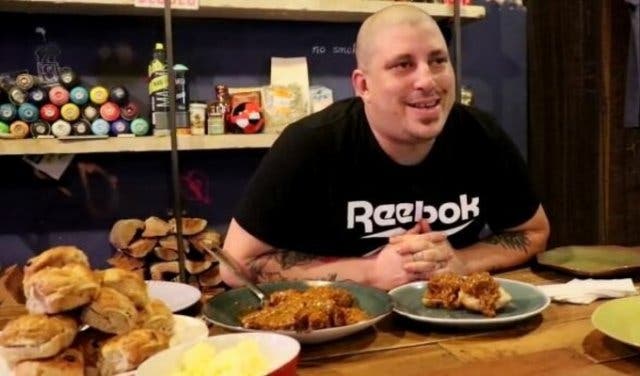
Chef Heinrich Koen makes his pickled fish with hake because it's flakey and good for absorbing the pickle.
Ingredients
For the hake:
2kg fresh hake, cut into pieces
Flour for dusting
Oil for frying
For the sauce:
2 Tbsp paprika
2 Tbsp garam masala
1 Tbsp turmeric
1 Tbsp smoked paprika
2 fresh chilies, chopped
2 cloves garlic, crushed
2 onions, chopped
100ml white spirit vinegar
3 Tbsp brown sugar
Cup of water
Method
Start by preparing the hake. Place a saucepan with a good coating of oil on high heat. While it heats, lightly dust the hake pieces in flour and gently shake off any excess. Drop the pieces into the oil and fry until golden in colour. Remove and set aside.
Next, prepare the sauce. Start by putting a pan over a medium heat with a dash of oil, and fry the onions, garlic, and chilli until caramelised. Add the paprika, garam masala, turmeric and smoked paprika and fry for 5 minutes until fragrant. Sprinkle in the brown sugar and stir until it's dissolved. Finally, deglaze the pan with the water and vinegar and simmer on low heat for 25 min.
After 25 minutes, remove the pan from the heat and allow it to cool completely. Then add the fish, mix it in well and refrigerate. It needs at least 24 hours for the fish to soak up the sauce, but you can keep it for up to two days.
Although Hill loves having his Easter dish inside a hot cross bun with a slathering of butter, he says, “We wanted to give Upper Bloem Restaurant diners who didn’t or couldn’t eat fish the chance to taste something similar.”
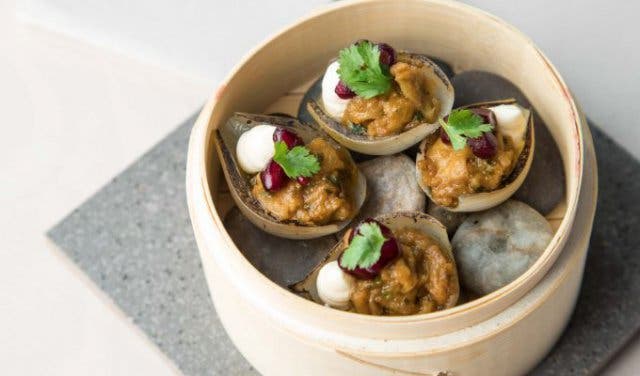
Chef Andre Hill served vegetarian pickled fish to diners as one of the snacks.
Ingredients
There are three main elements to this dish, each of which needs to be made separately: curried aubergine, caramelised onion petals, and seasoned goat’s milk yoghurt. The dish is garnished with pomegranate kernels, coriander, and mint.
For the onion petals:
5 baby onions
For the curry base:
2 onions, diced
3cm ginger, finely diced
4 garlic cloves, finely diced
1 stick lemongrass, bruised
2 lime leaves
1 tsp whole cumin
½ tsp cardamom
1 Tbsp coriander seeds, toasted and crushed
1 bay leaf
2 tsp turmeric
7 tsp mild curry powder
3 tsp garam masala
½ small tin whole, peeled tomatoes
1.5 litres vegetable stock or water
For the curried aubergine:
1kg aubergine peeled and cut into 1.2 cm cubes
300g rice flour
Sunflower oil (enough to ‘deep fry’, depending on the size of your pot)
For the pickling liquid:
250ml white wine vinegar
250ml white balsamic vinegar
150g sugar
For the seasoned goat’s milk yoghurt:
250g goat's milk yoghurt (place yoghurt in cheesecloth and colander overnight over a bowl; this will catch the whey from the yoghurt leaving a more intensely flavoured yoghurt).
250g whipped cream (whipped to soft peaks)
1/2 clove garlic grated (on a micro plane)
10g mint
½ tsp white balsamic vinegar
Juice of half a lemon
1 tsp salt
Method
Start with the onion petals. Peel the onions but keep them whole, and keep a bit of the bottom to hold the onion together. Bring salted water to a simmer. Once simmering, add the onions and blanch for 4 minutes. Remove the onions with a slotted spoon, and place in iced water to stop the cooking process. Pat them dry, and slice them in half lengthwise, then season with salt and a sprinkling of castor sugar.
Heat some oil in a pan over high heat. Place onions in a pan, cut-side down for a few minutes until they get some good colour. Allow to cool completely and then pull apart the “petals”. When you get to the smaller ones inside, set them aside to add to the curry sauce.
Next, start on the curry base. Sweat the onions, ginger and garlic in a saucepan for a few minutes until translucent. Add the lemongrass, bay and lime leaves and sweat for another minute. Then, add all the spices and cook until fragrant. Add the tomatoes and cook for one minute. Add the stock and let simmer.
While you wait for the sauce, fully coat the aubergine cubes in the rice flour. (Tip: you can also add the onion off-cuts into similar sized pieces and fry so there’s no waste). Pour a good amount of oil into a pan on high heat and deep fry the aubergine cubes in small batches at 160 degrees, or on medium heat until they’re golden on the outside. Drain and place the aubergine pieces on a paper towel.
Next, start the pickling liquid. In a pan, mix together white wine vinegar, white balsamic vinegar and sugar and allow to simmer for a few minutes. Remove from the heat.
Add 300g of the pickling liquid to the curry base, place the pan back on the heat and stir in the cornflour to allow it to thicken. Let the sauce cool completely.
Finally, add the aubergine to the sauce and mix in. Use equal amounts of aubergine and curry. Allow to marinate for a day before using.
Before serving, stir fresh coriander through the pickled, curried aubergine. In a small bowl, mix goat-milk yoghurt, grated garlic clove, mint, balsamic vinegar, lemon and salt. Once the mixture has come together, gently fold in the whipped cream and place in a piping bag.
Time to assemble! Use a tablespoon to scoop curry into the onion petals. Pipe a small dollop of the goats’ milk yogurt onto the top, and sprinkle with pomegranate kernels and herbs. Upper Bloem serves it on beach stone, with a smoked spice mix below, which is burnt to give the dish a spicy aroma when it reaches the table.
---
Learn how to make a classic South African braaied dish: snoek.
Locals love their fish and chips, and here are their top spots.
Enjoy your pickled fish with a hot cross bun.
Celebrate Easter weekend in Cape Town.
Let the kids find chocolatey treasures at an Easter egg hunt in Cape Town.
---
Loved discovering this? Make sure you get our popular weekly newsletter. Follow and like us on Twitter ❤ Facebook ❤ LinkedIn ❤ Instagram ❤ Pinterest for updates.
![]() Corporate getaway for big and small ...
Corporate getaway for big and small ...
One night free at this this fully-catered retreat in Winelands
![]() The hidden seaside bistro on the ...
The hidden seaside bistro on the ...
Inventive small plates best explored with a wine pairing
![]() Reasons to visit this beach-side family ...
Reasons to visit this beach-side family ...
DIY waffles, loaded hotdogs, poke bowls, right on the beach
![]() Brewery with food specials (almost) ...
Brewery with food specials (almost) ...
Daily specials on comfort meals like burgers and schnitzels
![]() Meet 100 bronze life-size figures at ...
Meet 100 bronze life-size figures at ...
From famous heroes like Mandela to forgotten ones like Autshumato
![]() Cape Town accommodation special for a ...
Cape Town accommodation special for a ...
20% off, free breakfast, access to rooftop pool
![]() Team building, stylish conferencing & ...
Team building, stylish conferencing & ...
Ultimate work-play-and-stay hub, Trail’s End
![]() Accommodation special at Cederkloof ...
Accommodation special at Cederkloof ...
Book for 4, pay for 2. There’s hot tubs, hiking trails, pools…
![]() Shimansky Diamond Experience at The ...
Shimansky Diamond Experience at The ...
The diamond showroom where you can polish your own stone
![]() Ficks, Hermanus’s tidal pool ...
Ficks, Hermanus’s tidal pool ...
Just as wonderful at night & during the cooler months
![]() The café creating space for ...
The café creating space for ...
It’s hidden in Hermanus. Here’s how to find it